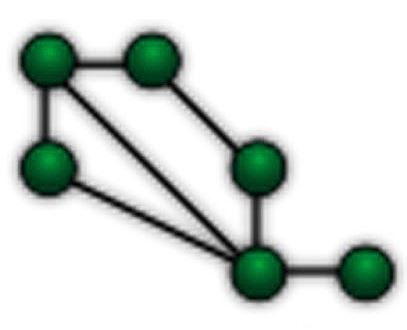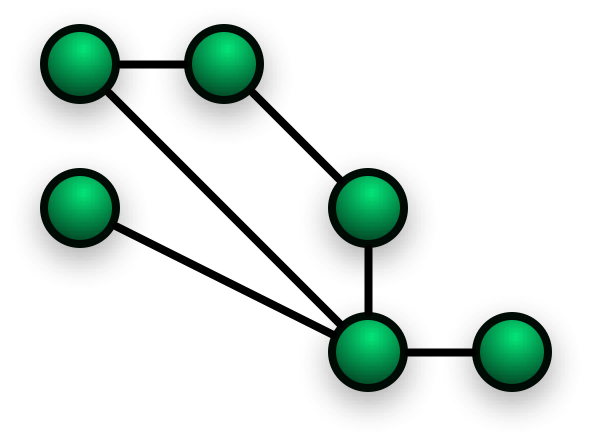Partial Mesh Topology
Partial Mesh Topology Description
In a partial mesh topology, not all nodes are interconnected, but some are connected to multiple other nodes, creating a mesh-like structure. This topology strikes a balance between the fully interconnected mesh topology and simpler topologies like star or ring. Nodes that are connected to multiple other nodes can relay data for nodes that are not directly connected.

Image of a Partial Mesh Topology
Why Partial Mesh Topology is Used
Partial mesh is often used in networks where some redundancy is beneficial, but the cost and complexity of a full mesh topology are not justifiable. It’s ideal for networks where certain nodes are critical and need multiple paths for data transmission to ensure reliability, but not every node requires such connectivity.
Benefits of Partial Mesh Topology
- Redundancy and Reliability: Provides redundant paths between some nodes, improving the network’s reliability and resilience to failures.
- Flexible Expansion: Allows for gradual expansion. New nodes can be added by connecting to just one or a few nodes in the network, without the need for full interconnectivity.
- Efficient Use of Resources: By not connecting every node with every other node, it can be more resource-efficient than a full mesh topology.
- Balanced Load Distribution: Can distribute network traffic more evenly than simpler topologies, as there are multiple paths for data transmission.
Drawbacks of Partial Mesh Topology
- Complexity: More complex than star or ring topologies, making it harder to design, install, and manage.
- Cost: More expensive than simpler topologies due to the increased number of connections, although less costly than a full mesh topology.
- Inconsistent Redundancy: The level of redundancy and resilience varies across the network, depending on how nodes are interconnected.
- Troubleshooting Difficulties: The complexity of the network can make troubleshooting more challenging compared to simpler topologies.
Comparison with Other Topologies
- Full Mesh Topology: Partial mesh is less expensive and complex than full mesh but offers less redundancy and reliability.
- Star Topology: While star topology is simpler and easier to manage, partial mesh offers better redundancy and avoids reliance on a single central hub.
- Bus and Ring Topologies: Partial mesh provides more paths for data and is less likely to experience complete network failure due to a single point of failure.
- Tree Topology: Compared to tree topology, partial mesh allows for more direct routes between nodes and doesn’t rely on a hierarchical flow of data.
Partial mesh topology is chosen for networks where certain nodes are critical, requiring reliable connectivity without the need for full interconnectivity among all nodes, balancing cost, complexity, and redundancy.
Extra
Redundancy on a budget

